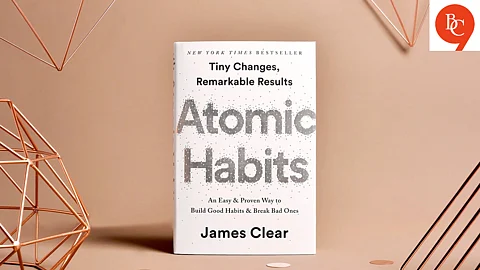

But here’s the thing: it's not just a good book—it’s a lifestyle. And you don’t need a perfect morning routine or a color-coded planner to make it work. You just need to start tiny.
On that note, here are 5 realistic “atomic” changes that actually work—backed by science, but more importantly, tested in real life.
1. Make Your Bed Right After Waking Up
Why it works: This 2-minute habit acts as a psychological cue that your day has begun. It builds momentum and gives a small win first thing in the morning.
Real-life bonus: You feel more put-together even on messy days. And honestly, crawling into a made bed at night? Chef’s kiss.
2. Keep a Water Bottle Where You Work
Why it works: Hydration isn’t just about health—it affects focus, skin, digestion, and even mood. But we often forget to drink unless it’s right in front of us.
Real-life bonus: You’re less likely to binge on snacks or coffee when hydrated.
3. Put Your Phone in Another Room During Focus Time
Why it works: Your brain gets micro-hits of dopamine from just seeing your phone. Moving it away reduces temptation and improves attention span.
Real-life bonus: Even 25 minutes of undistracted work feels magical.
4. Write One Line in a Journal Before Sleeping
Why it works: Reflection builds awareness and helps track emotional patterns. But journaling doesn’t have to be poetic or long.
Real-life bonus: It calms your mind, reduces overthinking, and improves sleep quality.
5. Do the 2-Minute Reset Rule
Why it works: Inspired by Clear’s “2-minute rule,” the idea is to do any small task that takes less than 2 minutes immediately.
Real-life bonus: Your space stays cleaner, your to-do list lighter, and your mind less cluttered.
Why These Tiny Habits Work
James Clear explains that habits shape your identity. It’s not about achieving big goals—it’s about proving to yourself daily that you’re becoming someone better.
"Every action you take is a vote for the type of person you want to become." – Atomic Habits
These five habits aren’t flashy. But they work because:
They’re sustainable.
They reduce decision fatigue.
They rely on environment and cues, not motivation.
You don’t need to overhaul your life or wake up at 5 a.m. to be more disciplined. Sometimes, all it takes is making your bed, drinking water, or writing one honest sentence about your day.
